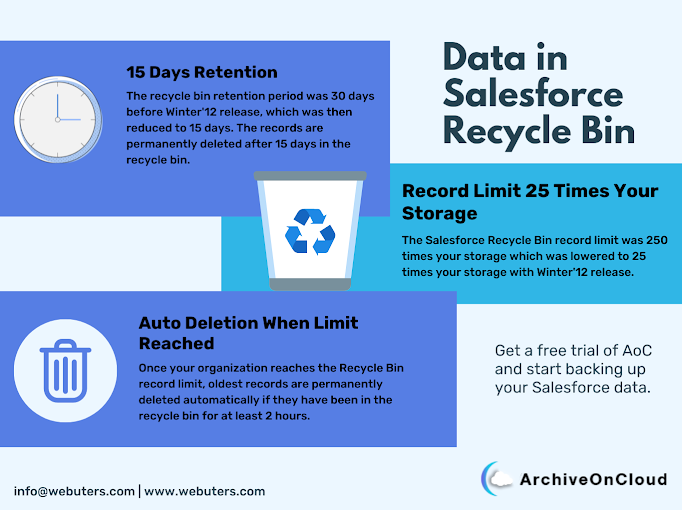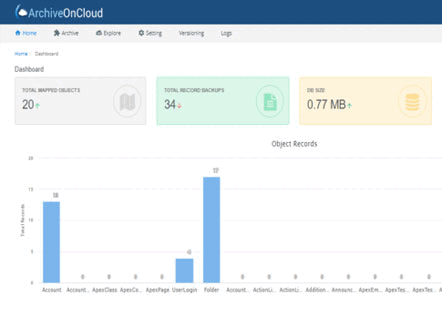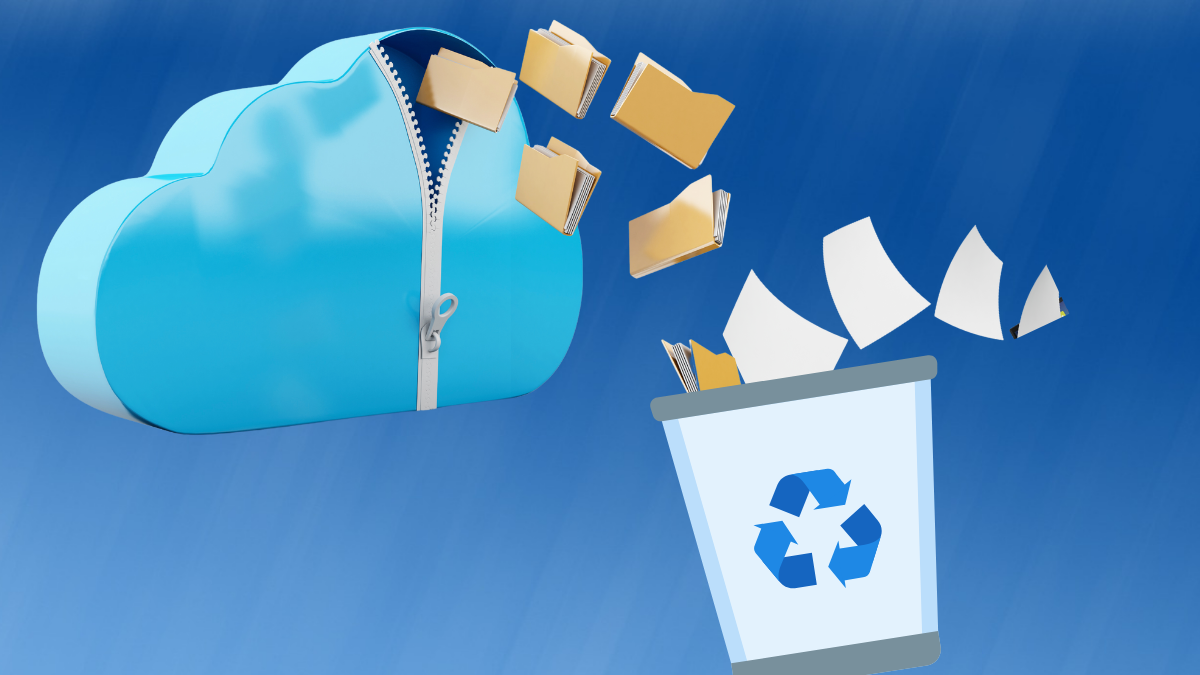Sometimes it is extremely frustrating when technology fails you. This can happen if someone accidentally deletes data, the Recycle Bin unexpectedly gets emptied, and your critical data can’t be recovered. Do you know how the Salesforce Recycle Bin works? What you should do if you unintentionally delete production data? How you can keep Salesforce data protected? Let’s dig in…
Also read: 8 things about Salesforce Data Backup and Recovery
What is the Salesforce Recycle Bin?
The most overlooked feature of Salesforce is the Salesforce Recycle Bin. This feature allows users to put data in the recycle bin, delete them and even restore data that was mistakenly moved to the bin. The Salesforce Recycle Bin sounds like a clever fix to the problem of deleted data, but it does have its limitations:
- You may not be able to recover deleted data if it’s not been more than 15 days since the original deletion.
- Did you accidentally delete important data? if you want to get it back, it could cost up to $10,000 USD and take weeks. This is how the other way of getting your data works, a recovery service by Salesforce called the Data Recovery Service can get your data back at a very high cost.
- All users cannot restore data from Recycle Bin, Only administrators and users with the “Modify All Data” permission can restore the data.
- If a user accidentally changed the data in a record before deleting it, they will only be able to recover the latest version, any different or point-in-time versions that contained the correct information will not recovered.
- Data loss from Recycle Bin also means any customizations can’t be restored, including reports, dashboards, etc. These must be manually recreated and it can be painful and costly to rebuild these bits of information.

How to Restore Items in the Recycle Bin?
To restore data from the Salesforce Recycle bin, you need to go to the Recycle bin and check the checkbox next to the items that you want to restore and click on Undelete. To restore all deleted items, check the box in the column header and then click Undeleted.
As mentioned by Salesforce, When you undelete a record, Salesforce restores the record associations for the following types of relationships:
Parent accounts (as specified in the Parent Account field on an account)
Indirect account-contact relationships (as specified on the Related Accounts related list on a contact or the Related Contacts related list on an account)
Parent cases (as specified in the Parent Case field on a case)
Master solutions for translated solutions (as specified in the Master Solution field on a solution)
Managers of contacts (as specified in the Reports To field on a contact)
Products related to assets (as specified in the Product field on an asset)
Opportunities related to quotes (as specified in the Opportunity field on a quote)
All custom lookup relationships
Relationship group members on accounts and relationship groups, with some exceptions
Tags
An article’s categories, publication state, and assignments
What Happens if You Delete Data From the Salesforce Recycle Bin?
Whenever you delete a file from the recycle bin, it is immediately removed forever. If you delete a file that was just part of an update to your Salesforce instance, like an upgrade or a patch, then your old version is gone too! You will lose all the data in your salesforce recycle bin when someone deletes the data, empty the recycle for your Org or automatic deletion after 15 days. Does this bring alarm about the major data risk you are dealing with? Noting to worry there are ways to protect your Salesforce data in every situation.
How to Protect Your Valuable Salesforce Data
Many organizations have raised concerns for the need of additional backup and recovery tool to protect Salesforce data. If you think the data protection and recovery offered by Salesforce is enough, you are putting your critical data at a huge risk. With that said, you need a reliable and secure data recovery solution for your Salesforce data. You can’t afford to get it wrong the first time or risk losing critical business data. With AoC, you can ensure high-quality data backups and recoveries for all your Salesforce data in one place.
You can check out AOC and get started with a free trial so you can see how it works for your organization.

